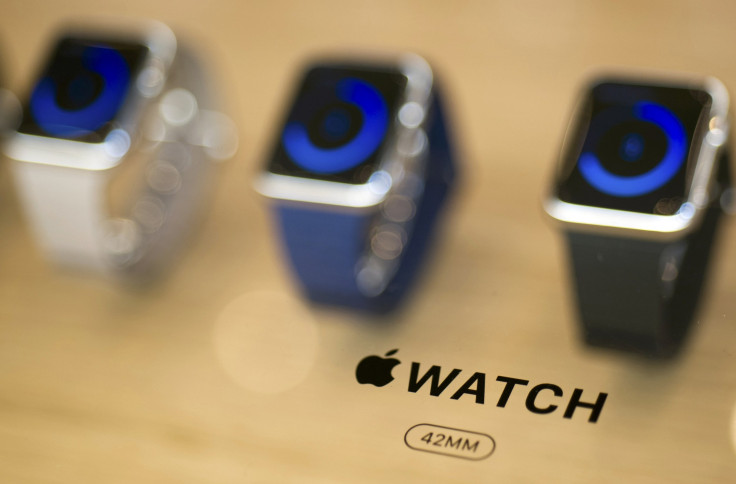Apple Watch US Sales Outpacing iPad Debut, According To New Estimate

While it might be hard to spot Apple Watches adorning the wrists of everyday Americans -- at gyms, bars or restaurants -- the fact is that Cupertino's new gadget is on pace to outsell hit products like the iPad and iPhone when it comes to domestic sales in its debut quarter.
According to a new estimate from Slice Intelligence obtained by International Business Times, Apple sold an estimated 2.8 million Apple Watches in the U.S. as of June 1. Preorders for the device began April 8, so that puts it on pace to surpass the iPad when the quarter ends June 30. The iPad sold 3.27 million units in its first quarter on the market in 2010, while the iPhone, arguably the biggest hit in Apple's history, clocked in with measly sales of 1.12 million units in its first three months on the market in 2007.
Of course, Apple Watch sales could cool before the quarter ends. But they could also get a boost as the device makes its in-store debut later this month. Apple Watch was originally available only online. The latest estimate from Slice Intelligence is derived from e-receipt data from a panel of 2 million online shoppers.
To be clear, Apple hasn't officially unveiled any numbers on the Watch, and it might not share those details anytime soon. Still, there's a reason that Apple Watches on wrists seem less ubiquitous than the hype -- or the numbers -- show. Most of the sales of the Apple Watch are occurring abroad, where Apple has racked up an estimated 7 million orders as of May 30, according to a research note from Trip Chowdhry, managing director of Global Equities Research.
That’s nearly double the combined unit sales of the iPod, iPhone and iPad in their respective launch quarters, according to company filings. But again, unlike those products, the Apple Watch had the advantage of launching in nine countries and markets, whereas the iPod, iPhone and iPad were available only in the U.S. at first.
One of the biggest limitations of the Apple Watch is Apple’s own ecosystem. Unlike its other products, the smartwatch also requires a wearer to own an iPhone as well. “[The Apple Watch is] a companion device, not a standalone product,” said Antonius Maroulis, analyst at IHS. “There’s a large user base for the Apple Watch via the iPhone, but it’s not accessible to everybody.”
And unlike previous Apple launches, this is the first time it has handled sales entirely online, with the exception of a few boutique partner shops such as Maxfield in Los Angeles and Isetan in Tokyo. That’s expected to change as Apple is preparing to offer the watch in its retail stores in the coming weeks.
But even then, Apple will have to deal with the millions of watches yet to be delivered. As of May 15, that was somewhere around 52 percent of U.S. orders, according to Slice Intelligence. Globally, Apple may have 4.5 million orders that have yet to be delivered, according to Chowdhry’s estimates.
The short supply was in part due to faulty Taptic engines produced by one of Apple’s supply chain vendors, according to the Wall Street Journal. Unlike the traditional vibration of a smartphone, the Taptic Engine produces taps on an Apple Watch wearer’s wrist for notifications and alerts. But since then, shipment times have gradually improved, falling from months to weeks for many models. Most recently, Apple said it has almost caught up with demand.
"All orders placed through May, with the sole exception of Apple Watch 42 mm Space Black Stainless Steel with Space Black Link Bracelet, will ship to customers within two weeks, " Jeff Williams, Apple’s senior vice president of operations in a statement on Thursday. "At that time, we’ll also begin selling some models in our Apple Retail Stores."
Apple may catch up with its orders soon, but that hasn’t stopped analysts from lowering their expectations on the Watch. Among them was KGI Securities’ Ming-Chi Kuo, who lowered his estimates for Apple Watch shipments in the June quarter by 20 to 30 percent down to 5-6 million units, according to a research note obtained by 9to5Mac in May.
How well the Apple Watch will do for 2015 is yet to be seen, but analysts predict Apple will sell anywhere between 8 and 40 million units, with a consensus hovering around 20 and 30 million.
© Copyright IBTimes 2025. All rights reserved.





















